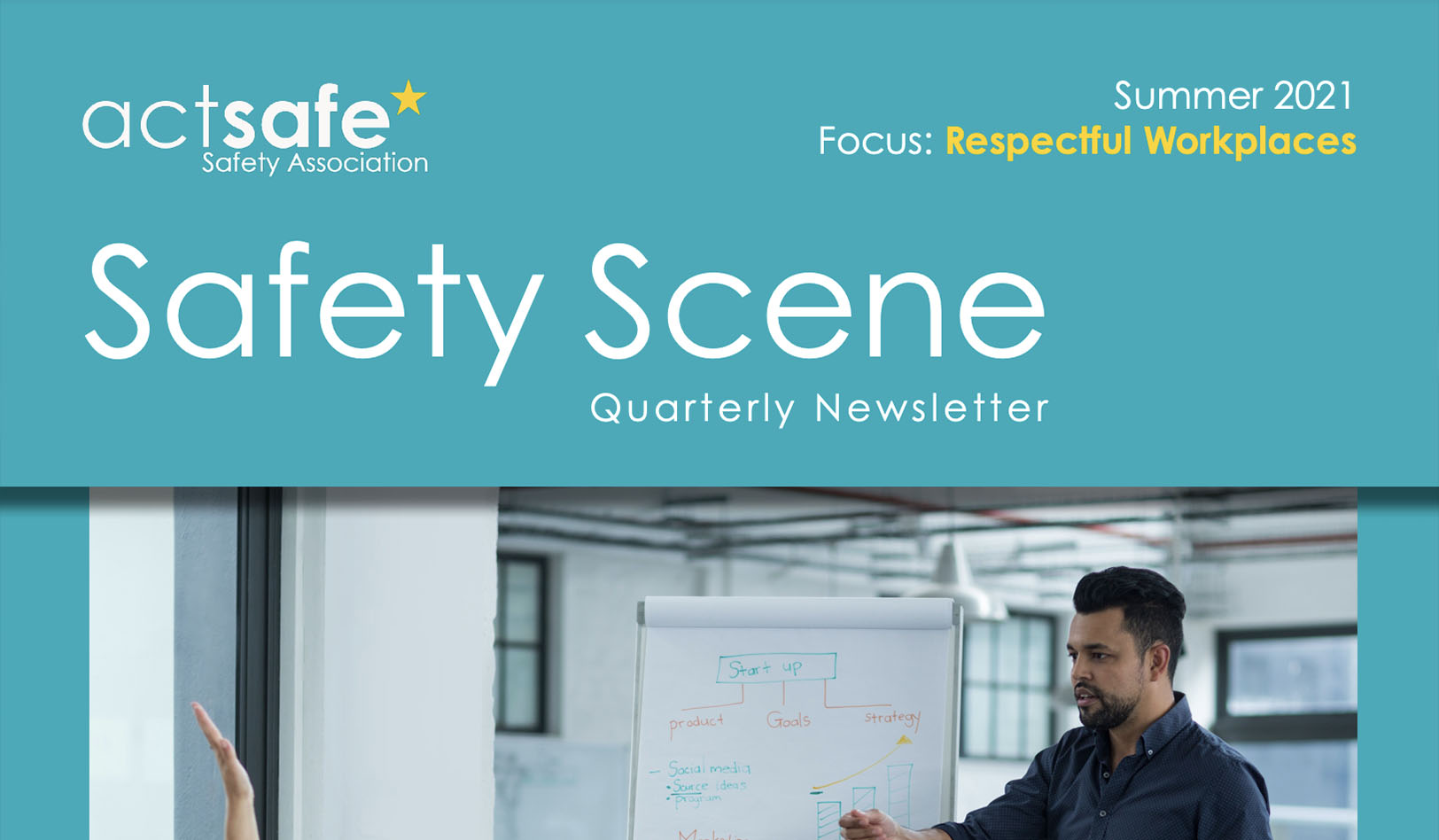
We look to the near future and welcome the thought of getting back to normal artistic and cultural production! But what of the “normal” parts that we don’t want to come back?
Dr. Grégoire Gagnon, Executive Director, CHRC
Two things come to mind when we think of improving cultural HR practices for everyone to thrive:
- eliminating workplace harassment, discrimination, and violence; and
- fostering inclusion, diversity, equity, and accessibility (IDEA).
Over the last few years, CHRC, the Canada Council for the Arts and the Department of Canadian Heritage teamed up with numerous leaders in the arts community to create a national Code of Conduct for the Performing Arts and a suite of resources that include videos, an anti-harassment and violence tool in our HR Management Toolkit, and workshops to create and maintain Respectful Workplaces in the Arts (RWA). Alongside this work, CHRC and HR consultants conducted two studies on reporting and investigating mechanisms in the cultural sector as well as the Labour Market Information Study of the Cultural Labour Force. While these studies provide a lot of information on what is and what isn’t working in the sector, the future is encouraging thanks to numerous initiatives and actions towards safer and more respectful workplaces.
We can collectively note how much has changed: we no longer ask “is harassment happening?”, there is a general acknowledgment of “it happens, now let’s eliminate it”.
Federally, Bill C-65 whittles it down to three aspects: PREVENT, RESPOND, and SUPPORT. Even if each aspect has its challenges, there are ways to overcome them.
There are more and more initiatives that address the PREVENT aspect and we’ve collectively made strides with the various conversations around the subject. Awareness and shared knowledge are key to this aspect. CHRC’s RWA workshops are great to bring forward an important baseline understanding of roles and responsibilities for all involved while treating the subjects of discrimination and Human Rights as workplace considerations. Thanks to the Department of Canadian Heritage, CHRC continues to offer these workshops with its incredible team of facilitators into 2021-2022. Feel free to request a workshop for your organization. In many jurisdictions across the country, a proactive approach is expected of establishments.
The RESPOND aspect of Bill C-65 is just as crucial as prevention. Imagine how many of today’s large-scale scandals or issues being brought forward could have been eliminated much earlier if they had been dealt with at the onset. In many cases (then and now), the recipients of bad behaviour (harassment, discrimination, bullying or violence in the
workplace) don’t have a mechanism through which to report the wrongdoing. Further, those that should handle the complaint or the investigation are oftentimes not equipped to do so and/or would be faced with investigating someone who happens to be a colleague or friend. Directors, managers and supervisors beware! Expectations and obligations are tightening up on this subject.
Ensure that your organization is equipped with a policy to deal with complaints from intake to investigation to outcome even if the solution is to outsource the entire process.
Gaining investigation skills to address issues (ideally with trauma-informed practices) is a step in the right direction so long as the incumbent has the courage and objectivity to know when to engage, when to not engage and when to disengage with the process. Some help may be found in the recent Association des théâtres francophones du Canada’s publication of the Guide d’appui aux gestionnaires to help managers deal with investigation considerations. The English version will be available soon.
Finally, there is a need to engage in the SUPPORT aspect so that all persons affected by a workplace incident or issue will be able to return to work safely and securely.
Truly incorporating the three aspects of Bill C-65 will help to usher in an era of IDEA.
As we rebuild our economy, reset our cultural practices, and rethink our organizational agendas, we must all ask ourselves: what can I do better to ensure an inclusive, diverse, equitable, and accessible work environment and to improve my organizational culture?
While we may be at different starting points in this process, we all need to get to the same point sometime in the future. To get there, we need to start earlier vs later, individually and collectively.
Join CHRC and the Cross-Sectoral Recovery Roundtables in the discussions on this subject and others. Join CHRC’s membership to benefit from accompaniment in all things HR.
This article was written for our quarterly newsletter, Safety Scene. You can find a link to the full edition below.



Share Now: